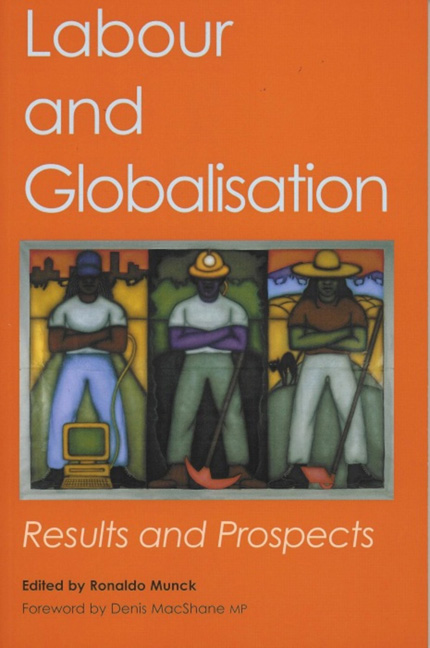Book contents
- Frontmatter
- Contents
- Acknowledgements
- Foreword
- Notes on the Contributors
- List of Abbreviations
- Introduction: Globalisation and Labour Transnationalism
- Part I Global Dimensions
- 1 An Emerging Agenda for Trade Unions?
- 2 The ICFTU and the World Economy: A Historical Perspective
- 3 Globalisation, Imperialism and the Labour Standards Debate
- 4 Towards Global Networked Unions
- Part II Spatial Dimensions
- Part III Social Dimensions
- Index
2 - The ICFTU and the World Economy: A Historical Perspective
from Part I - Global Dimensions
- Frontmatter
- Contents
- Acknowledgements
- Foreword
- Notes on the Contributors
- List of Abbreviations
- Introduction: Globalisation and Labour Transnationalism
- Part I Global Dimensions
- 1 An Emerging Agenda for Trade Unions?
- 2 The ICFTU and the World Economy: A Historical Perspective
- 3 Globalisation, Imperialism and the Labour Standards Debate
- 4 Towards Global Networked Unions
- Part II Spatial Dimensions
- Part III Social Dimensions
- Index
Summary
Since the world is like it is, it will not, for a long time, be possible to have global solutions to the problems of employment, basic needs production and multinationals. The international organisations will only be able to follow the smallest common denominator. Parallel to the lobbying work in international organisations, the international trade union movement should therefore use its contacts across borders to work on creating a development in the co-operation between political forces and governments that are prepared to create an expansionist economic policy with production and employment for the poor and weak, that are prepared to control multinational companies and that are prepared to create and use economic and organisational resources to make legislative controls of multinationals effective. (Lennart Nyström, LO Sweden, in 1976)
Just as globalisation, as it is now called, is a far from recent phenomenon, so the international trade union movement, which began to organise in the last decades of the nineteenth century, has always been concerned about the growth of the international economy and its effect on workers and their organisations around the world. The past of the international labour movement is only now being recorded as more materials become available, so the continuity as well as the changes in the labour movement's approach to the problems of the international economy are only now becoming familiar to the trade unionists and scholars who are seeking to make sense of globalisation and develop a coherent response to it.
The international trade union movement has not always been successful in its search for ways to act effectively on the basis of differing economic, political and social objectives, including national and regional interests. Beyond this, the ICFTU (International Confederation of Free Trade Unions) and its forerunners are clearly far removed from the concerns of everyday workers, making international trade unionism an easy target for those opposed to trade union bureaucracy and officialdom in general. But the questions raised by international union organisation are far from easy to resolve in practice: how can the international trade union movement organise in such a way as to take account of and give voice to the concerns of ordinary workers, and how can it persuade them to act internationally?
- Type
- Chapter
- Information
- Labour and GlobalisationResults and Prospects, pp. 34 - 51Publisher: Liverpool University PressPrint publication year: 2003

